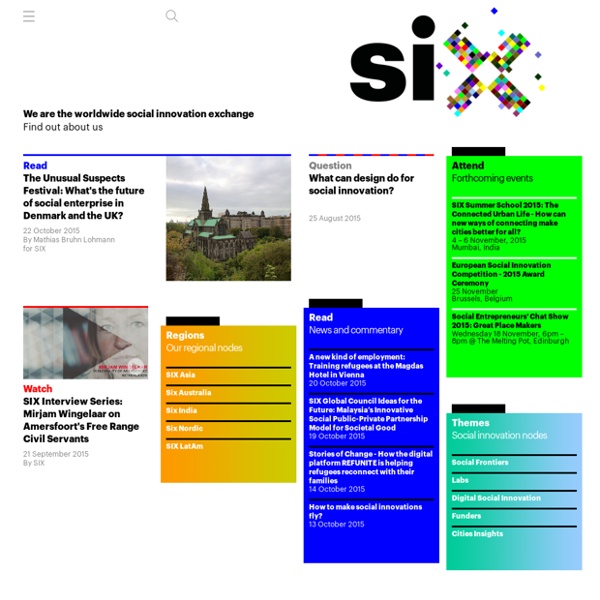Social Innovation Exchange

L'Économie a de l’Avenir | Des acteurs engagés pour une nouvelle façon d’entreprendre
Urban Times - Be the Change
TEDx Singapore : Ideas worth spreading | TEDx Singapore
We Demain, une revue pour changer d'époque
SparkTour
Economie sociale et solidaire : infos et actualités sur l'entreprenariat social Business et sens - - L'Express emploi
Accueil | Without Model
Même pas mal
Public and Private Actors in the Changing Landscape of World Aid
A conference organised by IDDRI, with the partnership of Youphil.com, at Sciences Po Paris (Amphithéâtre Chapsal) from 6:00 pm to 7:30 pm. With the participation of: Melinda Gates, Bill & Melinda Gates Foundation Patrick Guillaumont, Ferdi Philippe Meunier, Ministry of Foreign Affairs Jacques Moineville, French Development Agency (AFD) Laurence Tubiana, IDDRI-Sciences Po Kevin Watkins, Overseas Development Institute Conference chaired by Ghassan Salamé - PSIA-Sciences Po Presentation: The development assistance landscape has experienced tremendous change over the last decades. Simultaneous interpretation French - English
Connecting the Collaborative Economy
Related:
Related:



